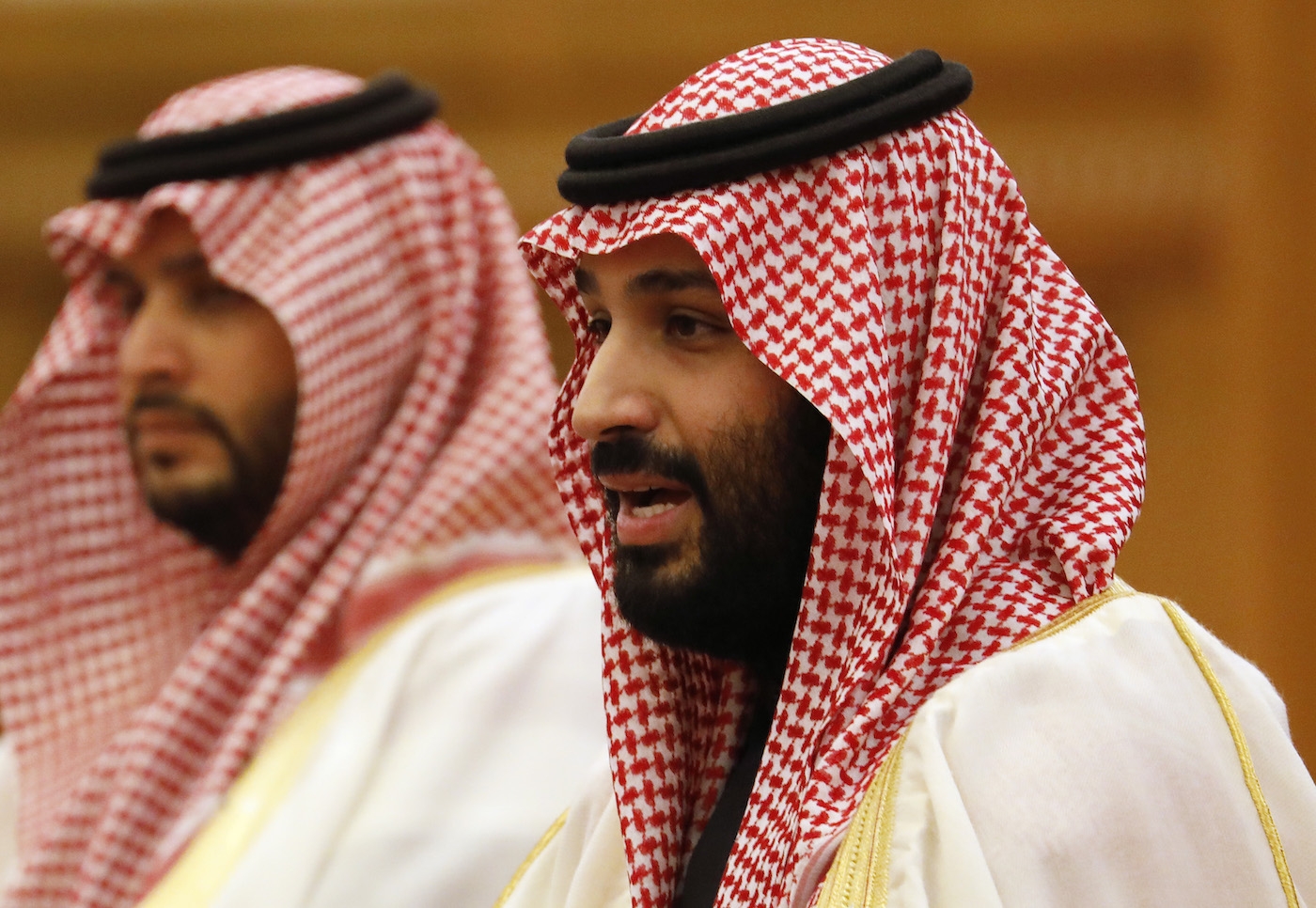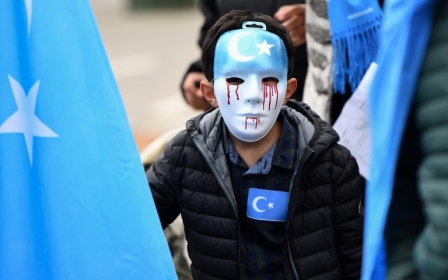Saudi crown prince appears to defend China's use of internment camps for Muslims

Saudi Arabia's powerful Crown Prince Mohammed bin Salman appeared to defend China's use of internment camps to restrict members of the country's Muslim minority, ignoring earlier calls for him to speak out on the plight of the Uighurs.
Without identifying the Uighurs specifically, the Saudi leader told Chinese President Xi Jinping on Friday that China "has the right to take anti-terrorism and de-extremisation measures to safeguard national security", the country's state-run CCTV said, as reported by AFP.
"Saudi Arabia respects and supports it and is willing to strengthen cooperation with China," said bin Salman, also known as MBS.
Meeting the crown prince earlier on Friday, Chinese Vice Premier Han Zheng also said the two countries should enhance exchanges on their experiences in de-radicalisation, China's official Xinhua news agency said in a separate report.
MBS's comments came at the end of a two-day trip to Beijing that concluded with Saudi Arabia signing a $10bn deal for a refining and petrochemical complex in the country.
The Gulf kingdom also pledged to cooperate with China on matters of counter-terrorism, while signing 35 economic cooperation agreements with China worth a total of $28bn, the Saudi Press Agency reported.
China has faced widespread international criticism for its human rights record, and in particular, for its abuses of members of the Uighur Muslim minority.
Numbering about 10 million in the country's northwestern Xinjiang province, a million Uighurs are believed to be held in internment camps, dubbed "re-education camps" by Beijing.
The Chinese government's crackdown against the religious minority accelerated in 2017, when it barred them from any public or private displays of their religious affiliation.
On Thursday, leading Uighur rights activists had told Middle East Eye they hoped MBS would raise their plight with Chinese leaders.
"He has a duty," said Salih Hudayar of the East Turkistan National Awakening Movement, a Uighur advocacy group in the United States. "We are surprised he hasn’t said anything, given the talk that he cares about human rights. I hope he changes his mind."
'Great embarrassment for humanity'
China has denied allegations it is persecuting the Uighurs, accusing its critics of interfering in its internal affairs.
That has been a familiar refrain among Saudi officials in recent months, as Saudi leaders, including MBS, have been under increased scrutiny after the murder of journalist Jamal Khashoggi and amid the ongoing war in Yemen and the brutal toll that conflict has taken on civilians.
While human rights groups, US lawmakers and even the CIA have concluded that MBS ordered Khashoggi's killing at the Saudi consulate in Istanbul on 2 October, Saudi officials have denied he was involved.
Instead, they have said accusations against the crown prince constitute "a red line".
Still, despite widespread concern from human rights groups about the plight of the Uighurs, very few Muslim-majority countries have spoken out about what's going on in China, apparently out of fear that upsetting Beijing could spoil fruitful economic relations with the Chinese government.
Earlier this month, Turkey ended that silence, condemning China's treatment of the Uighurs as "a great embarrassment for humanity".
"The systematic assimilation policy of Chinese authorities towards Uighur Turks is a great embarrassment for humanity," Turkish foreign ministry spokesman Hami Aksoy said in a statement, as reported by AFP.
Middle East Eye propose une couverture et une analyse indépendantes et incomparables du Moyen-Orient, de l’Afrique du Nord et d’autres régions du monde. Pour en savoir plus sur la reprise de ce contenu et les frais qui s’appliquent, veuillez remplir ce formulaire [en anglais]. Pour en savoir plus sur MEE, cliquez ici [en anglais].




